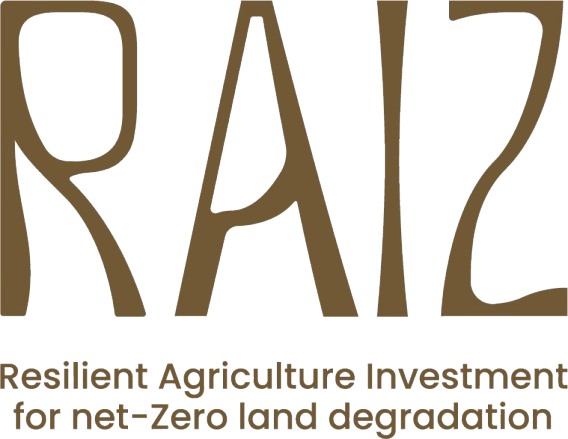

RAIZ Mapping Tool
Explore Mapping Tool arrow_forward



The Resilient Agriculture Investment for net-Zero land degradation (RAIZ) accelerator is a global
”mutirão”, launched at COP30, to unlock and strategically allocate crucial funding to help restore degraded cropland and pastureland in order to improve food security, support livelihoods, safeguard biodiversity, combat desertification, and stabilise the climate..
RAIZ is aligned with the UNFCCC, UNCCD, CBD, and the Sustainable Development Goals,
and directly supports the COP30 Presidency’s Action Agenda
on transforming agriculture and food systems, advancing the eighth key objective on rehabilitating degraded land, scaling restoration, and promoting sustainable agriculture through a clear acceleration plan. As an accelerator of existing efforts, RAIZ collaborates with governments, investors and leading initiatives toward achieving the UNCCD’s goal of restoring 250 million hectares of farmland by 2030, and lay the foundations for sustainable food production for many decades to come.
The RAIZ Mapping Tool, developed by the G20 Global Land Initiative Coordination Office of the UN Convention to Combat Desertification (UNCCD) with technical support from the Food and Agriculture Organization (FAO), the Food and Land Use Coalition (FOLU), and the Alliance of Bioversity International and CIAT (part of CGIAR), aims at providing essential data to a wide range of stakeholders including investors, policymakers, NGOs, project developers, and others across agri-food value chains helping them to swiftly and accurately identify areas with the greatest potential for productive restoration.
Ahead of COP30 in Belém, Brazil, the tool maps degraded cropland and uses grassland and shrubland as proxies to locate degraded pasture, displaying a global heatmap of degraded agricultural areas. Following COP30, development will continue based on conference feedback, with immediate goals to prototype features that rank restoration priorities using socioeconomic and biophysical indicators to maximize outcomes and investment returns. Ultimately, RAIZ aims to work with countries and their national institutions to co-create a Map of Degraded Agricultural Land, combining local data (on environment, climate, and livelihoods) and country commitments to identify priority areas for restoration and investment.